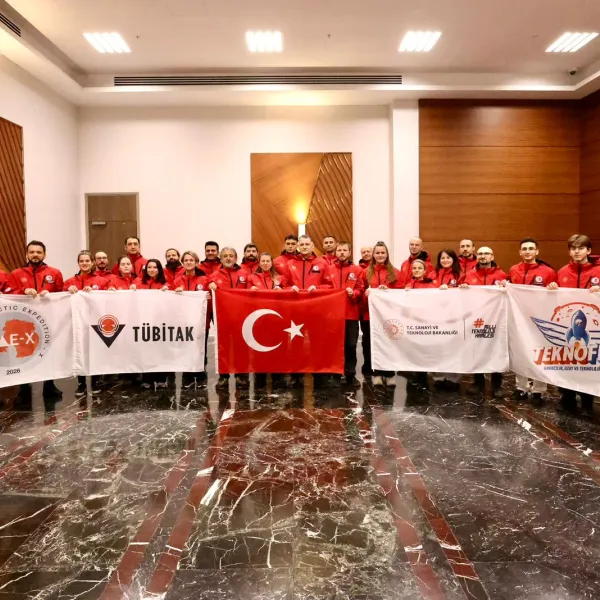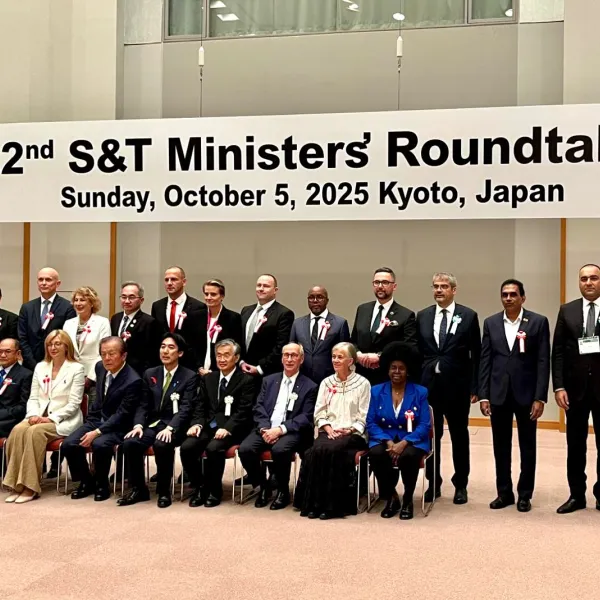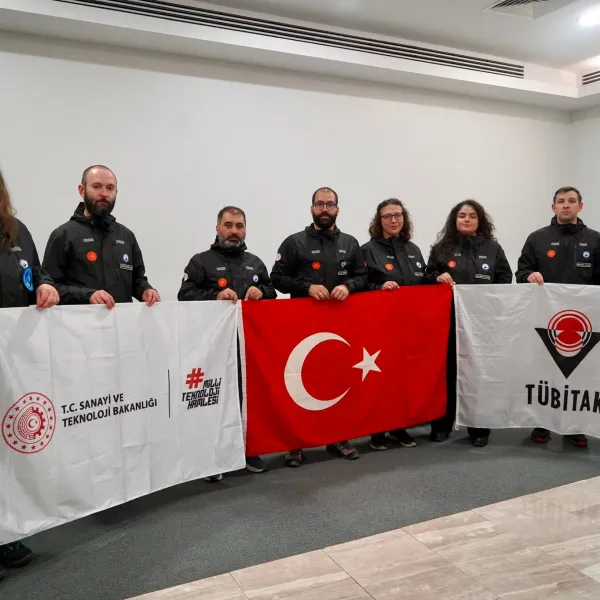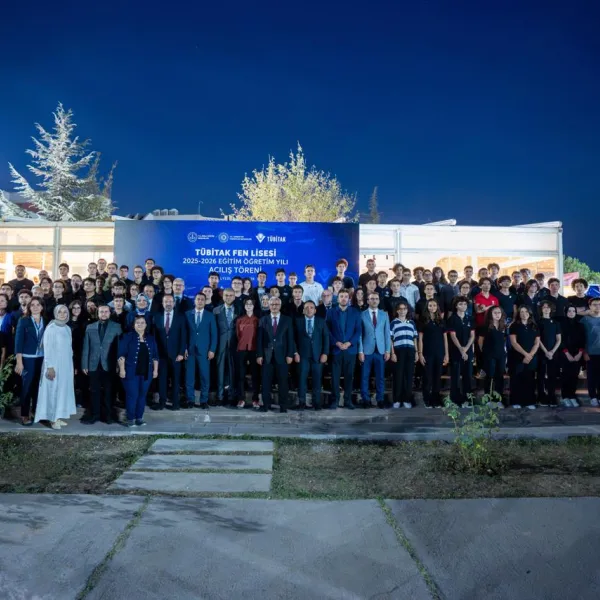
Introductory meeting of the "Industrial Innovation Network Mechanism (SAYEM) Program" in which its call will be open soon and the "2244 Industrial Ph.D. Program" which was established in order to encourage the employment of doctoral researchers in the industry and for training of qualified human resources with the degree of doctorate required by our country with university-industry cooperation in line with the targets of the year 2023 was held at TÜBİTAK Feza Gürsey Conference Hall. President of TÜBİTAK, who delivered the opening speech of the meeting attended by many University Rectors, University and TTO representatives, Industry R & D and Design Center and Teknopark Executive company representatives, Prof. Hasan Mandal said that support systems in Turkey were designed more input-oriented and the output was not measured sufficiently by doing a case analysis on the R & D and innovation ecosystem in Turkey.
The President of TÜBİTAK stated that one of the main problems of Turkey in R & D and innovation is the insufficiency in commercialization activities as byproducts of R & D and innovation activities. Stating that since the end user is not included in any projects, product verification cannot be practiced, Prof. Mandal said that technology-based products cannot find a place in the market. Prof. Dr. Mandal said that the two introduced programs are expected to contribute to this issue.
Prof. Dr. Hasan Mandal pointed out that technology-based early stage venture capital funds do not meet the demand, while underlining the need to develop country and area planning for International R & D cooperation. He also stated that support mechanisms at the control point based on intermediate outputs for large-budget R & D Consortium projects are limited and that the first phase, second phase, or even third phase can be achieved in the SAYEM Program with the High-Tech Platforms Program. Prof. Dr. Hasan Mandal, pointing out that High-Tech platforms and SAYEM are programs that focus on high-tech, said that they would contribute to commercialization of R & D outputs. He added that the 1514 program has been developed, while the idea of an ecosystem that includes structures such as Technology Development Zones and TTOs is dominant around the world, especially in the early stages of venture capital. While mentioning the developments oriented at the proliferation of knowledge transfer through the mobility of human resources between sectors, Prof. Hasan Mandal said that the Industrial P.h.D. Program was developed for this purpose. Stating that the mentoring service is weak in our culture, TÜBİTAK President emphasized that mentoring has an important place in addition to financial support.
"We Are Bringing an Important Innovation On the Calls”
Prof. Mandal said that basic science graduates cannot find a place in industry in their own fields and competence and human resource needs analysis is not done for areas having critical importance. Prof. Mandal stated that the main strategy was to integrate the triple structure of research, product development and technology into a whole. Prof. Mandal spoke as follows: “While we used to give priority product development in the past, now we give priority to the production of qualified knowledge and qualified human resource because in line with our country needs. We have the following programs; 1003 in the academic field, 1511 in the field of industrial R & D and innovation, and 1007 in the field of public needs-based R & D. One of the innovations we have brought at this point is that the programs of which calls will be open will be announced to you two years before the opening starting from 2019. On this occasion, you will be able to make your preparations in advance and you will be able to see the most appropriate call for yourself. The second innovation is to enable result-oriented cooperation in science, technology and innovation ecosystem”.
Prof. Mandal who drew attention to the differences in the ways of measuring the competence of universities and firms that apply to TÜBİTAK said: “For this reason, we determine the level of preparation of technology with competence analysis. Regarding the technology preparatory levels, 1 to 3 is prepared to start and end in the University. Between the levels of 3 and 6, university research centers and at the periphery of these research centers, industrial R & D centers and other universities are at the core. Between the levels of 6 and 9, it is planned to develop an ecosystem in which the company is in the center while universities and suppliers are at the periphery”.
“Processes Began to Be Considered Not as Superior Mind, But as Shared Wisdom.”
Stating that TÜBİTAK is begun to be evaluated with the processes of shared wisdom not with superior mind, in relation to participation, transparency and flexibility, Prof. Mandal expressed that the budget would be increased in the current programs, the process would be flexible, and it would be offered not only the action of project proposal, but also the possibility of participating in the panels as an observer. Prof. Mandal said: “We will pursue the High-Tech Platforms and SAYEM Program with an effective management approach”. Prof. Mandal added that certain types of authority would be transferred to the project owners who will manage these programs, and that they would be responsible for the success of the project from now on, and that they would not only take part in the bureaucratic processes of the project.
After Prof. Dr. Hasan Mandal, Vice President of BİDEB Assoc. Dr. Nurper Güz made a presentation introducing the 2244 Industrial Ph.D. Program. Assoc. Dr. Güz said that this program aims at encouraging the employment of doctoral researchers in the industry and for training of qualified human resources with the degree of doctorate required by our country with university-industry cooperation and developing the cooperation between University research infrastructure and industry in line with the targets of the year 2023. Assoc. Dr. Güz stated that the project will include private sector R & D or design centers, universities or research infrastructures and Technopark companies.
TEYDEB Entrepreneurship Support Group Coordinator, Dr. Sinan Tandoğan introduced “TEYDEB Interface Support Programs” in his presentation. Dr. Sinan Tandoğan emphasized that SAYEM's mission is to develop high value-added product or product group by creating innovation networks with the cooperation of private sector, University and public sector in line with national high-tech targets. The introductory meeting continued with the question and answer part.
Click for the presentation of President of TÜBİTAK, Prof. Dr. Hasan Mandal.
Click for the presentation of Vice President of BİDEB, Assoc. Dr. Nurper Güz.
Click for the presentation of TEYDEB Entrepreneurship Support Group Coordinator, Dr. Sinan Tandoğan.





